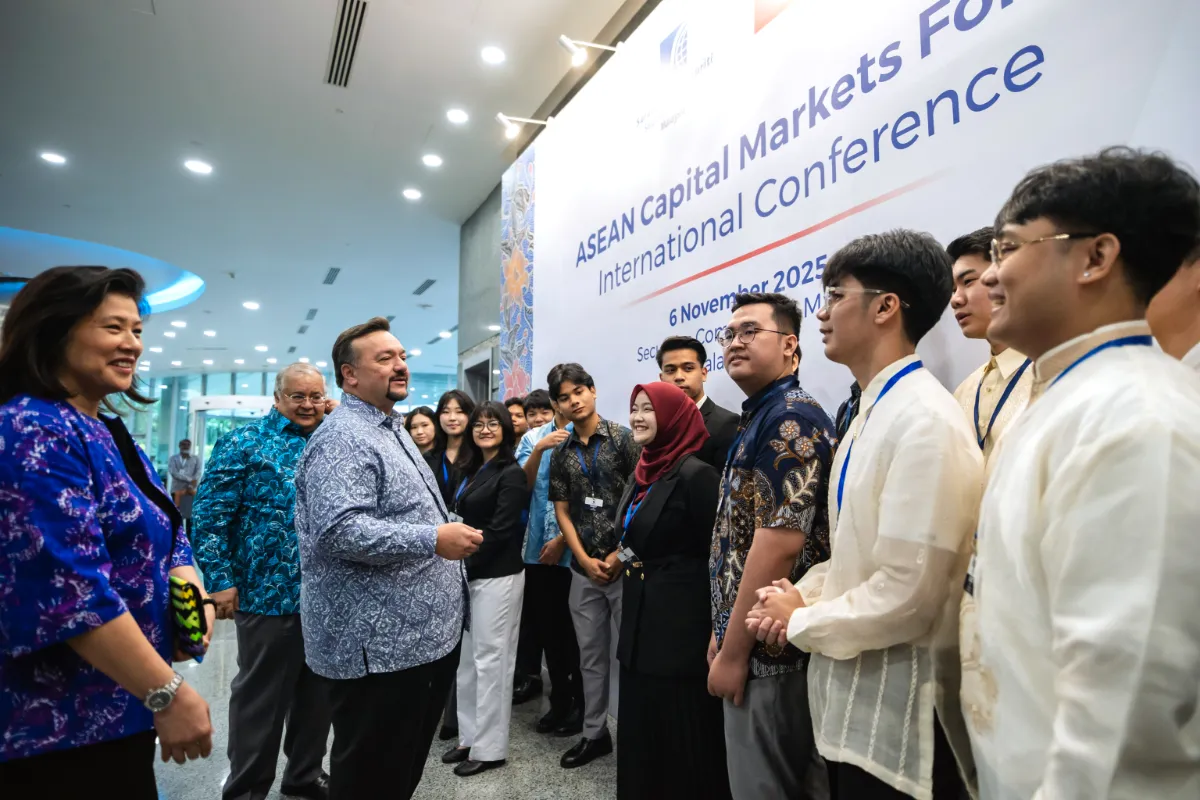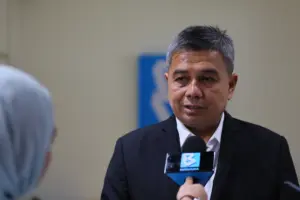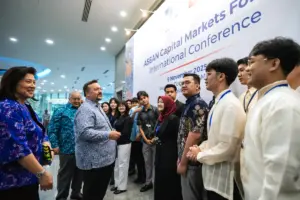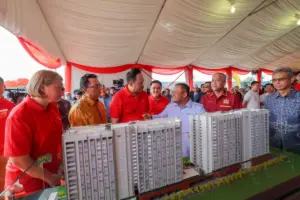KUALA LUMPUR: Prime Minister Datuk Seri Anwar Ibrahim said the Asean Capital Markets Forum (ACMF) Action Plan 2026-2030, which was launched today, will position the region as a destination for responsible and long-term investments.
Anwar, who is also the finance minister, said the updated ACMF Action Plan and the Asean Taxonomy for Sustainable Finance reflect the collective commitment to credible sustainability standards that align regional markets with global expectations.
“A well-functioning capital market is essential to mobilise resources, allocate capital efficiently and support growth. It must also uphold integrity, accountability and trust,” he said in his keynote address at the ACMF International Conference, held at the Securities Commission (SC) headquarters today.
His speech text was read out by Finance Minister II Datuk Seri Amir Hamzah Azizan.
Anwar said investors are now increasingly seeking transparency, ethical conduct and alignment with sustainability, and meeting this expectation is essential.
“By upholding fairness, clarity and good governance, we attract high-quality capital and ensure that investment into Asean strengthens both market confidence and public trust.
“The ACMF and our capital markets play a vital role – not merely moving capital, but advancing confidence, opportunity and shared prosperity for our people,“ he said.
Meanwhile, SC chairman Datuk Mohammad Faiz Azmi said the ACMF Action Plan 2026-2030 is anchored on five strategic thrusts as building blocks for a more connected Asean capital market ecosystem.
The five strategic thrusts are sustainability, financial inclusion, regional connectivity, digital transformation and enhancements to ACMF’s institutional structures. “It provides a comprehensive roadmap for our region’s capital markets,” he said.
Meanwhile, at an event in Cyberjaya, Anwar said Malaysia and Asean can only achieve true success if regional trade and investment continue to strengthen, alongside greater focus on new areas such as digital technology and artificial intelligence (AI).
He said these efforts should also be supported by strong international ties, particularly with economic superpowers such as the United States and China, to ensure that the nation’s electrical and electronic (E&E) as well as the semiconductor industries continue to thrive.
“Malaysia’s exports to the US are exponential. About 25% of its E&E and semiconductor demand is met by Malaysia, valued at nearly RM200 billion, involving thousands of supply chains and tens of thousands of workers.
“At the same time, we uphold the Asean centrality policy, which is why we maintain close ties with China, given its potential for rapid industrial and technological growth,” he said at the launch of the Malaysia Semiconductor IC Design Park 2.
Anwar noted that as a trading nation, Malaysia must continue expanding its trade networks and exports to new markets.
“We must also strengthen our traditional trade and export networks. There is tremendous potential in Africa and Latin America, and we have started breaking new ground through ties with Brazil and South Africa – all of this is for the future,” he said.
Anwar also emphasised that political stability and efficient policy execution are the two key pillars for the success of Malaysia’s semiconductor strategy.
“Our political system must remain stable. Equally important is having a clear plan – whether through an industrial roadmap or a defined semiconductor strategy – to outline the country’s next steps.
“We should be grateful because not many countries receive the level of attention we are getting now. These are opportunities, and when they come, our responsibility is to respond with clear policies and fast, efficient implementation,” he said.
Anwar noted that one of the main challenges facing the nation is ensuring effective policy execution while avoiding a ‘culture of complacency’ that could hamper progress.
“Our country is peaceful, the economy is resilient, and conditions are fairly good — but that’s what we call the culture of contentment or complacency. This is our challenge.”
On semiconductor investments, Anwar said Malaysia has the capacity to provide sufficient infrastructure and competitive incentives to position the country as an attractive investment destination.
“At the same time, we must nurture a highly skilled workforce to safeguard national interests. We need a talent pool that is well-trained and equipped with up-to-date skills. The younger generation has the capacity to adapt and excel in this field.”
The prime minister also noted that the semiconductor ecosystem should be viewed holistically, focusing on clear policies, efficient implementation and homegrown innovation. – Bernama
Post Views: 1






